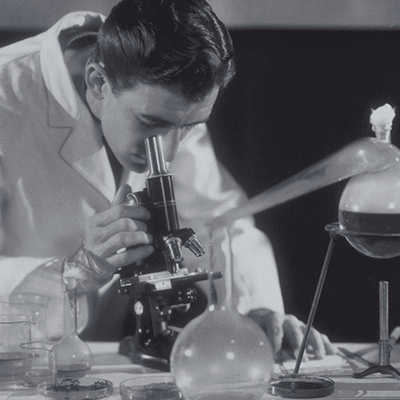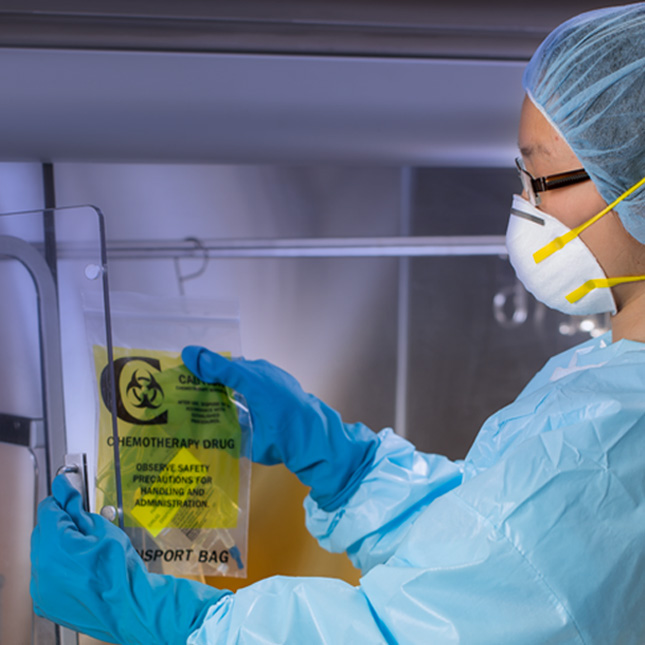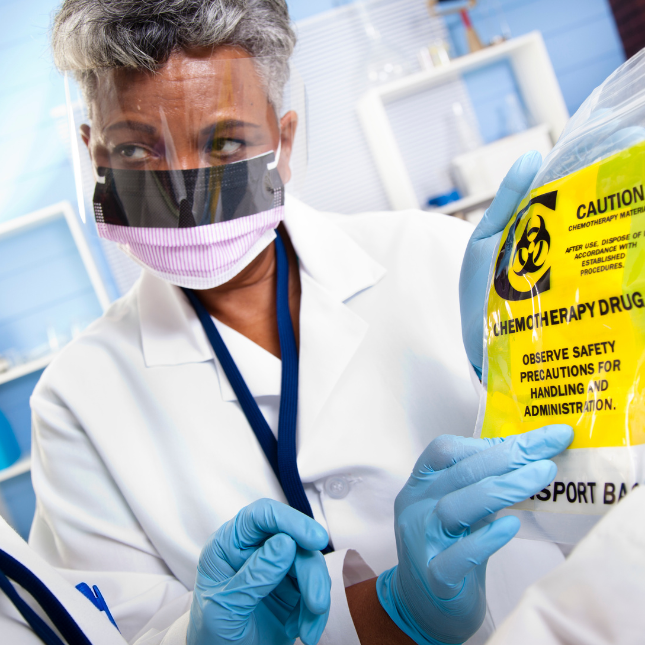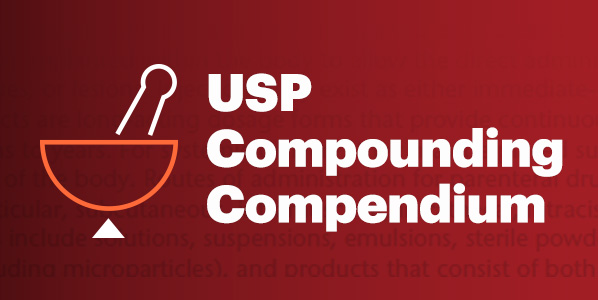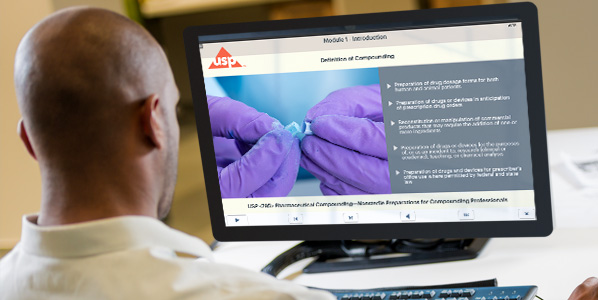Access <800> via Compounding Compendium Compounding Updates Know Your Exposure Infographic
USP General Chapter <800> provides standards for safe handling of hazardous drugs to minimize the risk of exposure to healthcare personnel, patients and the environment.
The National Institute for Occupational Safety and Health (NIOSH) considers a drug to be hazardous if it exhibits one or more of the following characteristics in humans or animals: carcinogenicity, teratogenicity or developmental toxicity, reproductive toxicity, organ toxicity at low doses, genotoxicity, or structure and toxicity profiles of new drugs that mimic existing hazardous drugs.
USP General Chapter <800> describes requirements including:
- responsibilities of personnel handling hazardous drugs
- facility and engineering controls
- procedures for deactivating, decontaminating and cleaning
- spill control
- documentation
These standards apply to all healthcare personnel who receive, prepare, administer, transport or otherwise come in contact with hazardous drugs and all the environments in which they are handled.
Important Updates
- January 21, 2025 – USP and NIOSH hosted a joint webinar for stakeholders about the NIOSH List of Hazardous Drugs in Healthcare Settings, 2024.
- December 23, 2024 – The CDC has published the NIOSH List of Hazardous Drugs in Healthcare Settings, 2024.
- June 28, 2024 – The USP <800> HazRx® Mobile Application is no longer be available for purchase or download from the app store.
- If you have already downloaded the app, you can continue to use existing data within the app. All bookmarks will be kept locally on the app.
- November 1, 2023 – USP General Chapter <800> became compendially applicable
- USP <800> can be accessed via the USP Compounding Compendium or USP-NF
- June 26, 2020 – Revision Bulletin published to clarify the term ‘antineoplastic’ for the purpose of Chapter <800>
- December 1, 2019 – Official date for General Chapter <800>
- May 31, 2019 – Revision Bulletin published to confirm the official date of USP General Chapter <800>
Developing USP General Chapter <800>
Public Health Need
The need to help ensure a quality environment and to protect healthcare personnel from hazardous drugs has been a topic of concern for decades. Growing evidence highlights that acute and chronic health effects can occur due to occupational exposure to over 200 hazardous drugs used commonly in healthcare settings. While NIOSH defines criteria and identifies hazardous drugs, USP developed standards for handling these hazardous drugs to minimize the risk to public health. The goals of these standards are to help increase awareness, provide uniform guidance to reduce the risk of managing hazardous drugs, and help reduce the risk posed to patients and the healthcare workforce.
USP Process
USP is a not-for-profit, science-driven organization that has an established process for convening independent experts in the development and maintenance of healthcare quality standards. The process is public health focused, leveraging current science and technology, and draws on the expertise of scientists and healthcare practitioners while providing opportunities for public input from stakeholders throughout the standard-setting progress.
The USP Compounding Expert Committee is responsible for the development of General Chapter <800>. Review their work plan and past meeting summaries. General Chapter <800> was published on February 1, 2016.
Resources
- USP <800> Context for Implementation (updated 11/1/2023)
- Compendial Applicability of USP <800> (updated 11/1/2023)
- USP <800> FAQs (updated 11/1/2023)
- USP <800> Commentary (published 02/01/2016)
- USP General Chapter Education Courses
- Sign up for USP Healthcare Quality & Safety Updates
- Other Publications



